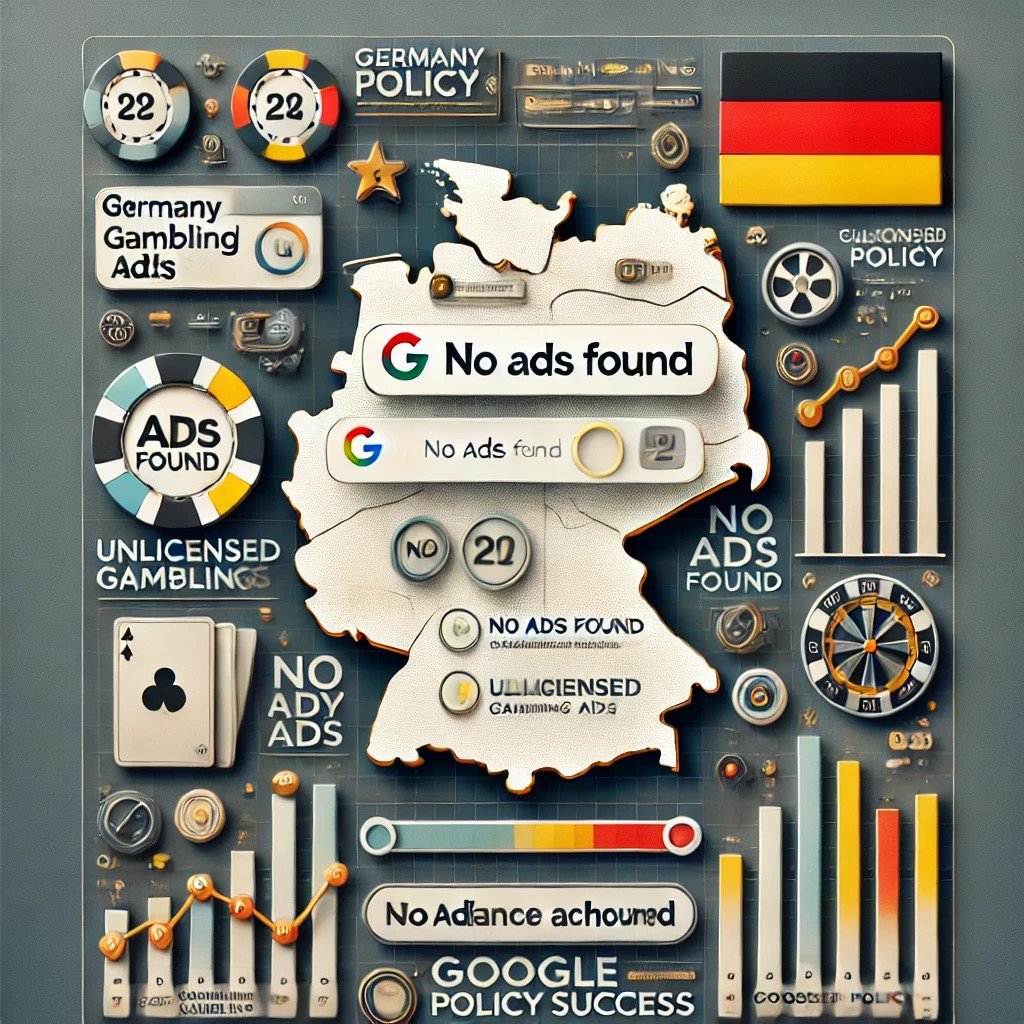Germany experiences a decline in unlicensed gambling advertisements following Google’s update.

Germany Sees Significant Drop in Unlicensed Gambling Ads Following Google Policy Update
Germany’s Joint Gambling Authority (GGL) has reported a substantial decrease in advertisements for unlicensed online gambling providers via Google Ads. This development comes after the implementation of Google’s revised “Gambling and Other Games” advertising policy on 25 September 2024.
Policy Changes Targeting Unlicensed Ads
The updated policy restricts Google Ads access to gambling operators and intermediaries licensed by the GGL. It excludes comparison websites that aggregate multiple gambling providers, a step aimed at reducing exposure to illegal operations.
The GGL emphasized that this policy shift ensures Google’s search results prioritize licensed gambling providers, helping to curb unregulated activities. Regular audits have confirmed the elimination of sponsored ads for unauthorised online gambling and comparison portals on Google in Germany.
Constructive Collaboration with Google
The policy update is the result of a proactive dialogue between the GGL and Google, initiated in 2023. Rather than resorting to administrative measures, the GGL opted for collaborative efforts, which have proven effective in reducing illegal advertisements.
Ronald Benter, CEO of the GGL, stated, “From our point of view, the amended advertising guideline is currently having a clear effect.”
Challenges in Organic Search Results Persist
Despite progress in paid advertising, illegal operators continue to exploit search engine optimization (SEO) techniques to maintain visibility in organic search results. These tactics include link-building campaigns and ranking manipulation, which allow unlicensed providers to bypass restrictions.
Benter highlighted the ongoing challenges, adding, “We will continue to monitor the development and remain in contact with Google in order to achieve further restrictions on advertising opportunities for illegal gambling providers.”
The GGL aims to collaborate further with Google to address these SEO issues, focusing on limiting the organic search visibility of unlicensed operators.
Broader Industry Concerns: A Market in Transition
The GGL, established in 2021 to centralize gambling regulation in Germany, officially took full regulatory control in January 2023. However, progress in Germany’s regulated gambling market has been met with mixed reviews.
Operator Frustrations at Industry Stagnation
At the recent Gaming in Germany conference, operators and legal experts voiced concerns over excessive regulation, which they claim is stifling growth and innovation.
- Online Casino Sector: According to Dirk Quermann, president of the German Online Casino Association (DOCV), the number of active licensed online slots operators remains low at 39, far behind comparable jurisdictions. Quermann also noted declining revenues between 2022 and 2024, attributing the trend to regulatory barriers.
- Sports Betting Decline: Mathias Dahms, president of the German Sports Betting Association (DSWV), reported a revenue drop in licensed sports betting, from €9.4 billion in 2021 to €7.7 billion in 2023. Dahms described this as a troubling trend driven by the migration of players to unregulated markets.
Both associations argue that these issues stem not from a decline in interest but from a shift toward unlicensed operators, driven by Germany’s tightly regulated environment. They continue to advocate for more balanced regulations to revive the industry and attract global operators back to the market.
The Road Ahead
While the reduction in unlicensed gambling ads marks a victory for Germany’s regulators, ongoing challenges in SEO and industry dynamics underline the need for sustained efforts. The GGL remains committed to improving regulation and fostering collaboration to balance market growth with responsible gambling practices.


